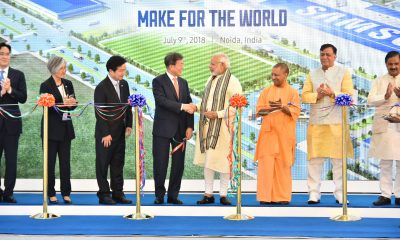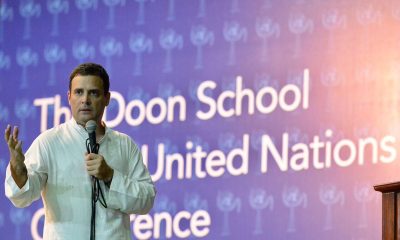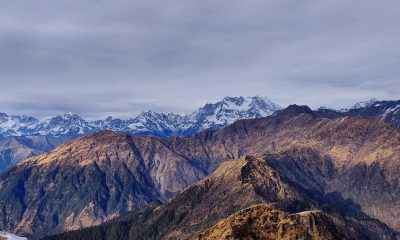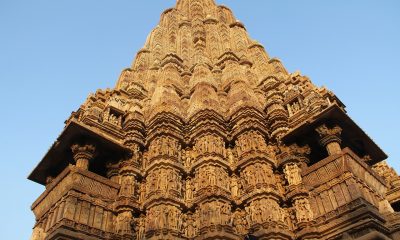India
Great Indian election drama; J&K is new hotbed for Dynasty Raj
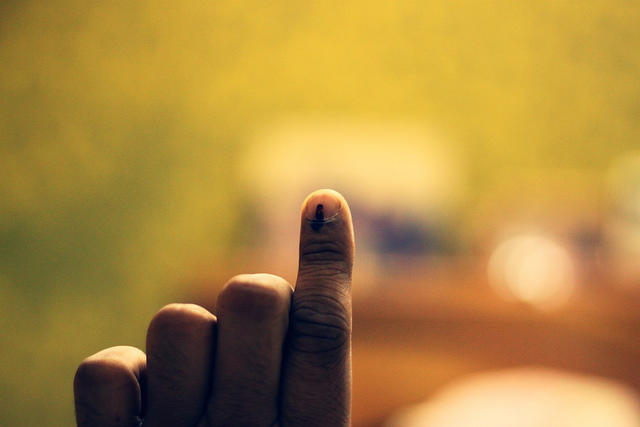
flickr/mhatrey
If politics is a game of power, than no one is ready to pass on the baton other than to his own family, has exactly become evident in Jammu and Kashmir, India this election season. The state has turned into a hotbed for dynasty raj with several sons, daughters and kin of powerful politicians all set to contest the assembly elections- many of them making maiden tryst with destiny.
A close analysis revealed that around 15 sons and nephews of political leaders have joined fray in this election by securing party mandates on the basis of their family background. Shockingly, the strong outburst against the Dynasty Raj by Prime Minister of India, Narendra Modi, notwithstanding, the Bhartiya Janta Party (BJP) has apparently relaxed its tough stand for the party’s J&K president, Jugal Kishore Sharma, who has handed over the baton of Nagrota candidature to his brother Nand Kishore.
The party high command has already put its seal of approval leaving many party contenders, including Dogra Royal family scion, Ajat Shatru Singh to fend for themselves. Ajat had recently relinquished his MLC seat on NC nomination and left the party to join BJP.
Even as speculations were rife that Ajat would get BJP mandate, the party preferred Nand Kishore Sharma reportedly after the MP and state president Jugal Kishore Sharma build pressure for his candidature.
Party insiders told that Jugal Kishore has played significant role in grabbing mandate for his brother Nand Kishore, who is supposedly a ‘naïve’ in politics without having much following. Political observers said that BJP has reserved ‘dynasty raj’ as a strong offensive to attack National Conference and People’s Democratic Party during the assembly election campaign, however, the party has itself deviated and followed the line of other dynastic parties of the state.
Nanad Kishore will make his political debut in upcoming polls as by the influence of his brother Jugal Kishore he got the mandate from Nagrota constituency, party insiders said. They added that BJP has two experienced candidates including Chander Mohan Sharma and Ajatshatru from Nagrota assembly segment, but the party has decided to file fresher Nand Kishore.
They added that Chander Mohan Sharma was a senior worker associated with the party for last many years. Dropping of Chander Mohan Sharma has evoked strong resentment among his supporters. Similarly, Ajatshatru, who joined BJP early this month, has represented the constituency on National Conference after his win in 1996 elections.
BJP spokesperson Arun Gupta said that the party has given mandate to Nand Kishore after noticing his work. “Nand Kishore is known in the party due to his work not as a brother of MP Jugal Kishore” Gupta said.
Apart from BJP, many dynastic politicians are making debut in the politics through these elections, while others have already made their mark.
The politician sons, daughters and nephews, who would make political debut in this election, are Salman Anees Soz son of JKPCC chief, Prof Saifudin Soz. Anees , Javaid Beigh, nephew of Member of Parliament (MP) Muzaffar Hessian Beigh. Both of them are contesting from Baramulla segment.
Two sons of former deputy Chief Minister and veteran Congress leader Mangat Ram Sharma, Subhash Sharma and Rajneesh Sharma, are also ready to make debut in politics. Interestingly, while Mangat Ram Sharma quit Congress party to join PDP, his two sons are contesting elections on the mandate of two different parties.
Elder son Subhash is People’s Democratic Party (PDP) candidate from Kathua assembly segment, while Rajneesh is the Congress candidate from Bani, represented by his father thrice.
Another politician son trying his luck this election season is Vikram Mahlotra son of senior Congress leader and Chairman of Legislative Council, Amrit Mahlotra. Vikram is seeking election on Congress ticket from Jammu east constituency.
Dr Hina Bhat, who is being projected by BJP as its face in Kashmir Valley, is contesting from Amira Kadal, nonetheless being daughter of Mohammad Shafi Bhat, one time National Conference (NC) legislator and now a Congress leader.
Others have inherited the political legacy of their family include Akram Choudary, son of former minister and CLP leader Mohammad Aslam Choudary. He is candidate from Surankote. Aziz Munshi, son of former minister Munshi Habibullah, he is BJP candidate from Kargil, NC candidate from Duroo Farooq Ahmed Gania is son of former minister Mohammad Akbar Gania , Nazeer Ahmad Khan son of former minister Sarfraz Khan is Congress candidate from Beerwah Budgam, Manzoor Ahmad Zargar son of former PDP Minister Aziz Zargar. Manzoor has joined Congress and the party has fielded him from Noorabad constituency.
Likewise, Sheikh Ishfaq Jabbar, son of former minister Sheikh Jabbar, a close associate of National Conference founder Sheikh Mohammad Abdullah is contesting on NC ticket from Ganderbal. Ishfaq had initially joined Congress, but is now contesting on National Conference ticket and has replaced Omar Abdullah from Ganderbal.
However the dynastic raj in Jammu and Kashmir has flourished utmost in strongest political families of the state, Abdullahs and Mufties with the former having already produced two generations of politicians, Ministers and Chief Ministers. Omar Abdullah, present Chief Minister had in his family two chief Ministers, his grandfather, Sheikh Mohammad Abdullah and Father Farooq Abdullah, besides many uncles as Ministers and politicians.
Omar joined politics in 1998, as a Lok Sabha member and he took on the mantle of National Conference from his father in 2002. Though he faced defeat from Ganderbal during 2002 state assembly elections, four years later, he contested once again from the same seat and won in the 2008. Mehbooba Mufti Sayeed is the daughter of former Jammu and Kashmir chief minister Mufti Mohammad Sayeed. In 1996, assembly elections Mehbooba became one of the most popular members – elected from Bijbehara on an Indian National Congress ticket. Mehbooba Mufti was a member of the 14th Lok Sabha (2004-2009), representing the Anantnag constituency of Jammu and Kashmir. Her party, PDP, failed to win a single seat in Lok Sabha elections in 2009 and she did not contest that year herself. But in 2014, she was elected again to Lok Sabha from Anantnag constituency.
India
Government Changing Syllabus to Include Sikh History in India
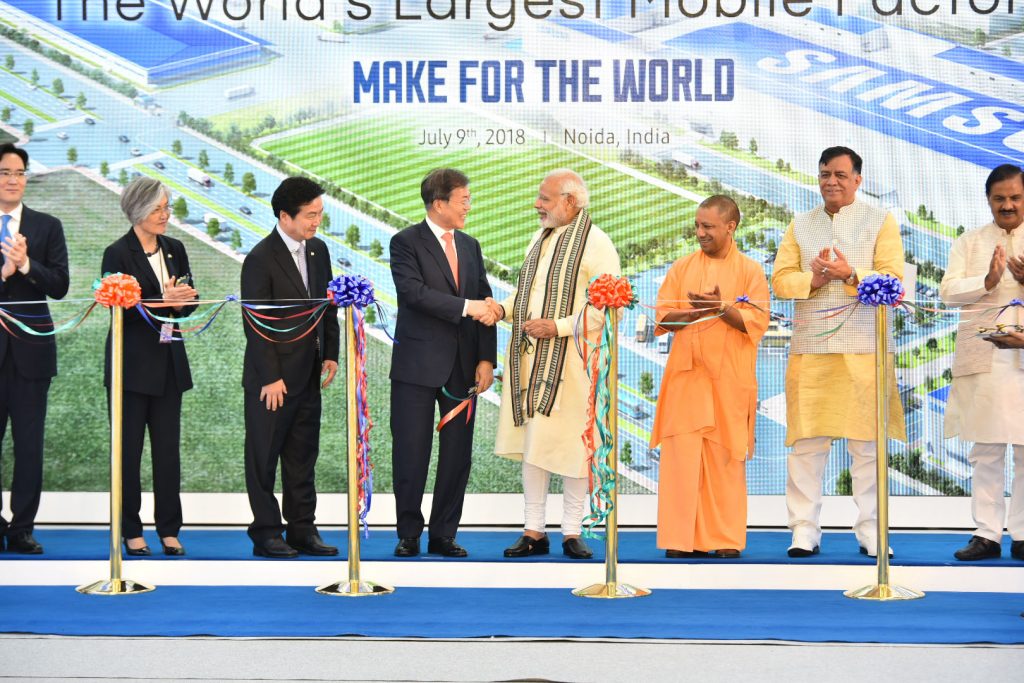
Chief Minister of Uttar Pradesh, most populous state in India, has announced inclusion of Sikh history in the state syllabus. Students of all schools under UP State Board will see the new chapters. The announcement came when Chief Minister Yogi Adityanath (BJP) was observing Sahibzada Diwas.
Why do we Observe Sahibzada Diwas?
Sahibzada Diwas marks the martyrdom of four ‘sahibzada’ (or sons) of Guru Gobind Singh (10th Sikh Guru) and his mother Mata Gujri. In the year 1705, Mughal Emperor Aurangzeb had ordered torturing of youngest sons of Guru Gobind Singh aged 5 and 8. He later executed the little sons by burying them alive into a wall. The reason for this act was that they refused to convert to Islam. Soon after this event Guru Gobind Singh’s mother, Mata Gujri also martyred her life under Aurangzeb’s captivity. The cause of her death is still unclear. Guru Gobind Singh’s other two sons martyred their life in the Battle of Chamkaur Sahib. Thus the 10th Sikh Guru, Guru Gobind Singh had lost his whole family by 27th December. This is an important event in the Sikh history in India and UP Government is finally keen on observing Sahibzada Diwas every year.
Why UP Government is Changing the Syllabus?
Soon after the independence of India in 1947, the school education came under tight grip of far left and communists. Most of the Indian history in the recent past has been written by Romila Thapar and Irfan Habib. They have close ties with left wing ideology and Irfan Habib has delcared himself as Marxist. They wrote history text books by either phasing out sections of Indian history or diluting certain events. The motivation to soft alter the history has been to propagate left-wing/communist ideology. Historian Koenraad Elst once highlighted that Romila Thapar is comfortable neither in Sanskrit nor in Farsi language. The knowledge of these two languages is a must to understand India’s history.
In the recent years, various public opinions have gained momentum to rewrite Indian text books to include more content on Indian rulers and native ideas. Currently, Indian text books mainly teaches about foreign rulers of India such as Mughals and British.
With this announcement of inclusion of Sikh history in history text books, the government is bringing historical facts in mainstream.
27th December as Real Children’s Day
Chief Minister Yogi Adityanath has also reached out to the Education Minister to declare Sahibzada Diwas as Children’s day. He further added that “The history of Sikh gurus will be a part of the syllabus. Apart from this, we should observe December 27 every year as Sahibzada Diwas in all schools. Today is the day to pay gratitude to the sons of the Guru and mother who martyred their lives for the motherland, country and religion.” Yogi Adityanath also said that “No society can move ahead if it forgets history. The Sikh society is known for its hard work. The Sikh gurus sacrificed their lives to defend the Hindu religion. The country will always remember this.”
Yogi Adityanath added that learning about the sacrifices by Sikh Gurus would inspire future generations to dedicate themselves into nation-building. He emphasized that we should make future generations realize that India and Indian culture was safe because of sacrifices of Sikhs.
What Should We Do On Sahibzada Diwas?
Sahibzada Diwas should be an important day for every Indian regardless of their region, culture or religion. On this day, we are in the Holiday mood as it falls right between Christmas and New Year’s eve. However, we should remember that a Guru and his entire family sacrificed their life for the well being of India and the idea of India.
On this day we can fast, do sewa (service), visit a nearby Gurudwara and sleep on the floor at night.
China
Nepal Hindu Rashtra: Time to Wrap Up Communism?

Nepal abolished the Constitutional Monarchy in May 2008 and declared itself as a Federal Democratic Republic. There was a new hope in Nepal as it was becoming world’s newest democracy even though it had dissolved the Hindu Rashtra. However, the democracy in Nepal immediately got into the tight grips of leftists and communists backed by China. It has been almost 12 years since monarchy was abolished in Nepal. Interestingly, the Himalayan country has already seen 11 Prime Ministers in this period. Thus, leaving the Nepalese people still yearning for good and stable governance.
Re-establish Hindu Rashtra
As the political instability is growing in Nepal, people are demonstrating concerns about the future of the country. In fact, Nepalese citizens are unhappy with frequent interference by China and India influencing its unstable communist regime. More voices are now growing in support of reinstating the Monarchy and declaring Nepal as world’s only Hindu Rashtra (which by default offers full religious freedom to other religious minorities as per Hindutva concept of Sarva Dharma Sama Bhava – all paths lead to one).
Former Deputy Prime Minister of Nepal, Kamal Thapa said that if political parties do not recognize the seriousness of reinstating the monarchy, then the country will head for a period of darkness. “Recently, we’ve had high-ranking officials from India and China come to Nepal to try and solve problems within the ruling party,” he said. “We cannot let others dictate what we want to do.”
Communist Party All Set to Suppress Protests, By Force
Kamal Thapa has firmly demanded an all party meet to discuss reinstating of monarchy. Throughout the month of December, 2020 Nepal has seen anti communism protests across the country in support of reinstating the monarchy and Hindu Rashtra. Most importantly, the demand has become a nationwide mass people’s movement. So much so that the communist regime had to send a directive to 77 districts in 7 provinces. The directive suggests suppressing the protests by force. Nevertheless, Rashtriya Prajatantra Party and other royalist groups have ignored this threat from the communist regime. Protester groups have pledged to strengthen the protest in the coming weeks.
Nepal: Demonstration held in capital Kathmandu, demanding restoration of monarchy in the country. pic.twitter.com/TFjmKu9U9Z
— ANI (@ANI) December 5, 2020
Role of China – Hope for Communism in Nepal
China’s ambassador to Nepal is known to have very close relationship with Nepalese Communist regime. In fact, She has been super effective in tilting Nepal’s posture towards its ideological partner, China. One of her greatest achievements in 2020 was artificially manufacturing a border conflict between Nepal and India. Consequently, souring relations between the two Hindu majority nations. In addition, she managed to silence Nepal’s communist government after China took one of Nepal’s border villages under its control. However, recent political turmoil in Nepal and a renewed demand for reinstating of Hindu Monarchy is showing that the situation is now out of Chinese hands
Role of India
Year 2020, was not a good year for India and Nepal relations. India was busy in controlling domestic Covid cases. On the other hand, China had launched an invasive campaign into Indian territory. In addition, India is always busy with Pakistan on its western borders. However, the surprise came to India when China was almost successful in creating a new border tension between India and Nepal.
Those who do not know about Indian government should note that the current ruling party in India finds itself ideologically opposite to communism. This further creates differences between the two countries.
Communist party in Nepal has blamed India for supporting the ongoing anti communism protests in Nepal. However, former advisor to Nepal’s PM has suggested there is no proof that India is fueling pro Monarchy, anti communism demand in Nepal.
Nevertheless, There are certain influencers in India who have, in their personal capacity, expressed support for reinstating the Hindu monarchy. Yogi Adityanath, who is the Chief Minister of an Indian state bordering Nepal, said in 2015 that Nepal should declare itself a Hindu Monarchy. Readers should note that in 2015 Yogi Adityanath was not the Chief Minister yet. However, today he is not only popular in south of Nepal, his popularity is growing in Nepal as well.
Will The World See the first Hindu Rashtra?
It is difficult to answer this question at this moment. However, Nepalese communist government could not resolve the political instability and in December 2020 Nepalese government dissolved the parliament. Nepal will see next elections in April – May 2021. Hopefully, the world will see Nepal’s 12th Prime Minister in 13 years or may be a Hindu King? Royalists and protester groups have expressed confidence in winning next elections. We have our eyes on Nepal for updates.
India
Humanity Endures During Coronavirus Pandemic

Photo by Press Information Bureau, Government of India
The world changed exponentially since the pandemic broke out. We changed too. Emotions are running high. We have learnt to take one day at a time and have stopped expecting changes to happen overnight.
“COVID19 is menacing the whole of humanity – and so the whole of humanity must fight back”
A clarion call from United Nations Secretary-General António Guterres is a call to unity and solidarity. Already plagued by natural/manmade disasters and wars, many countries seem to bite the dust for want of resources in the fight against the virus. Warning each other against complacency is appreciable but never a blame game to cover up a dysfunctional response. Not all update themselves on the governments, new economic policies and R&D on Covid vaccine. Many we come across seem to be making wise individual choices. No matter how badly the tiers of government fail us, there will always be thousands of people working to make things better. Besides, finding reasons and faults on policies for the spread doesn’t help. A virulent strain of flu had managed to spread within a few months to the remotest corners of the world infecting half a billion people – more than a quarter of the human species in 1918 long before the current age of globalization.
Separating, alienating and forswearing the endless moments of contact that knit society together thrust us into frightening new realities. The good is still there. Social distancing is nothing but taking a step back to literally give breathing space to others. Going by news & views, we understand that amid concerns of rising numbers of positive cases in frustrating circumstances, acts of kindness and solidarity are burgeoning. Yes, it’s been extremely sad and sobering to watch this all unfold, but watching people share resources and supporting one another in every conceivable way has made us feel more connected to our local communities. Whether singing a song together out on balconies, getting groceries for the elderly or calling a friend to alleviate anxiety and fear, each one I know play a part and take comfort in a sense of togetherness. We are steadily aware of our limitations yet don’t hesitate to free our wells of compassion. Do we think twice and thrice to make an online contribution to save the lives of people we don’t know and will never know!
Sadly, it has taken an invisible virus to help us belive once again that we are strongest only when we have the welfare of others in our mind. Halfway through quarantine and self-isolation a phone call, a kind word, an opportunity to reach out, a breeze, bird calls, one good news and loss of a loved one, we are hit with the necessary humility and awe we ought to feel and appreciate just how beautiful our world is and precious life is.
Post pandemic recovery will be better and bigger if life goes on with this beautiful idea, of humility, inwardness – as an ethical relationship, for the sake of others. For better or for worse, we have learnt that one can’t be an island unto himself. Lives are intertwined and are bound together. We, humans produce more rubbish than any other species. The growth in the human population is part of the explanation, but cannot account for all of the extra rubbish, a result of haste and greed both which almost skinned humans of humanity.
Unity among countries must ensure that all countries are equipped to trace, isolate and treat people infected by COVID-19. Only a global effort can avoid the collapse of any country’s medical system. Sanctions that affect health care should never be imposed. Development in one part of the world should not rob another country of it’s resources. Humanity gains the upper hand over invisible predators through the sharing of reliable scientific information, global solidarity, vaccinations, antibiotics, improved hygiene and a much better medical infrastructure. Today,it doesn’t take too much to figure out that global sharing and caring is the best defense. The Jing Si aphorism, “Good actions require everyone’s cooperation. So let’s not cling to personal biases” holds good for all times.
Stories of good samaritans are aplenty. To know humanity is still alive and kicking and is at it’s best when united assures us that we’ll come out of this “abnormal” time with a new normal. In their own unique ways, humans respond to protect life and health and ensure respect for fellow beings. ‘single-nucleotide polymorphisms’ are no joke. From handing over meals, survial kits, medicines, home made masks to calling on an old couple across the street, everything is humanity in action and it is the power of this humanity – humane behaviour towards other humans – that we seek to celebrate, improve and increase, especially during crucial times. Remember “A person with a generous heart and compassion for all beings leads the most blessed life”.
With thousands of migrant workers taking it on their chin, vehicles filled with food and ration along highways reach the needy and stranded and canteens serve free food. Rays of sunshine! We see through hypocrisy and deceptions, hear excuses for inefficiency, inadequacy and inflexibility and within the tumult and uncertainty we are doing much, much better in life than we thought we can. Quietly. Kindly. Gently. Being able to spare a part of us to help someone live is worth being thankful for. ” Giving with an expectation for return brings misery”. May we give generously, but don’t guilt ourselves if we can’t. If we have nothing left to spare, let’s go slow and kind.
The world is being taught a lesson, the harder way. This lesson is not about rich and powerful versus poor and powerless but about leadership that treasure the common wealth and common good, above private greed and profit and above protecting the privileges of a handful elites.
None of us are actually going anywhere. Might as well stay. The conclusion we draw from this crisis is that all humans matter equally, that we need to give a hand, raise one another, flourish or perish together- no matter what our limitations are, we’re capable of a great deal. This virus backlash is nothing short of a fleeting lesson to all leaders about how sane, humane societies should function all the time. Those who regard themselves as wonderfully favored of leadership, power and pelf are called to do great things. Anything that constantly arise to cause conflicts or disunion must be questioned, criticized, denounced and judged.
Be it a forced contemplation of our mortality or a sudden urge of self denial or an awareness of the passage of time and life, this screeching halt is proof that humans are designed to be more productive when connected, even in isolation. So, not all hope is lost. The time has come when we must know for ourselves why we believe in humanity as we do.
“Do something good for somebody today; the people who are trying to make the world worst aren’t taking days off.”
Gestures to honor humanity are varied, aplenty. A flypast in India is a cruel joke on the already tumbling down economy and on the selfless humanitarians who spare nothing to reach out. We can only wish the trail of showered petals, if showered will guide the departing victims of COVID19. Flying past/over ground realities is a highly irresponsible act of governments. Also, a misuse and mismanagement of meagre resources.
Was it a premonition that urged saint Thiruvalluvar, celebrated Tamil poet and philosopher to get on with kural 578 which when translated into English goes as
” The world is theirs (Kings) who are able to show kindness, without injury to their affairs, (administration of Justice).


